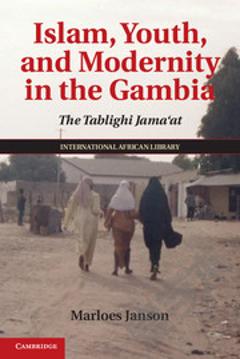Limits of Islamism: Jamaat-e-Islami in Contemporary India and Bangladesh
This book focuses on Islamism as a political ideology by taking up the case study of Jamaat-e-Islami in contemporary India and Bangladesh. The book will address how, in a contemporary globalized world, Islamism constructs an antagonistic frontier and how it mobilizes people behind its political project. The book also deals with the Islamist critique of neoliberal economic policies and 'western cultural globalization'. The book examines the dynamics from the formation of Islamist politics for the struggle for hegemony to failure to become a hegemonic force in Bangladesh. The contradiction between Islamic universalism/Islamist populism, on one hand, and a politics of Muslim particularism in India, on the other, is revealed in this study. Finally, this book traces the contemporary crisis of Islamist populism in providing an alternative to neoliberalism.
{{comment.content}}








 京公网安备 11010802027623号
京公网安备 11010802027623号